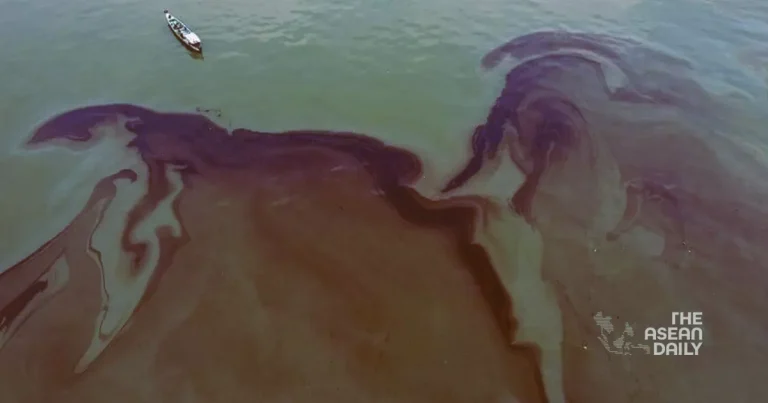6-8-2024 (MANILA) The Philippine province of Bataan has declared a state of calamity for the second time in recent weeks, this time due to a devastating oil spill that threatens to impact over 17,000 local fisherfolk. The declaration comes on the heels of an earlier state of calamity announced on 24 July, which was prompted by the combined effects of Super Typhoon Carina (internationally known as Gaemi) and the southwest monsoon.
Governor Joet Garcia, in a statement released Monday evening, emphasised the urgent need for this second declaration. “This additional state of calamity is absolutely crucial given the fresh devastation facing more than 17,000 fishermen in Bataan,” Governor Garcia explained. The oil spill, caused by the vessels MTRK Terranova and MTRK Jason Bradley, has raised significant concerns about the region’s marine ecosystem and the livelihoods dependent upon it.
The governor highlighted the potential dangers to aquatic resources in the municipalities of Limay, Mariveles, and Bagac, noting that these communities heavily rely on these resources for their sustenance and economic activities. According to data from the Department of Social Welfare and Development, the oil spill has already affected 10,174 families in Limay and 4,822 families in Mariveles, underscoring the widespread impact of this environmental disaster.
“The second state of calamity will unlock additional funding for the province,” Governor Garcia stated. “This will enable us to implement effective measures to combat the damage caused by the oil spill and provide immediate assistance and services to affected residents.”
The incident that led to this crisis occurred on 24 July when the Terranova, carrying 1.5 million litres of oil, sank in Bataan waters amidst rough seas caused by Typhoon Carina. Complicating matters further, authorities later discovered two additional leaking vessels in the area, raising suspicions of potential oil smuggling activities.
This environmental emergency has not been limited to Bataan alone. Prior to this declaration, eight towns in the neighbouring province of Cavite had already been placed under a state of calamity due to the same oil spill. The National Disaster Risk Reduction and Management Council’s latest situational report indicates that a total of 21 cities and municipalities have now been placed under a state of calamity as a result of this incident.
The dual declarations of calamity in Bataan within such a short span highlight the compounded challenges facing the province. As the region grapples with the aftermath of a powerful typhoon, it must now also contend with a significant environmental disaster that threatens both its marine ecosystem and the economic wellbeing of thousands of its residents.
Local and national authorities are now faced with the daunting task of managing the oil spill’s immediate impact while also investigating the circumstances that led to this crisis. The possibility of oil smuggling adds another layer of complexity to an already challenging situation, potentially pointing to broader issues of maritime security and environmental protection in Philippine waters.




